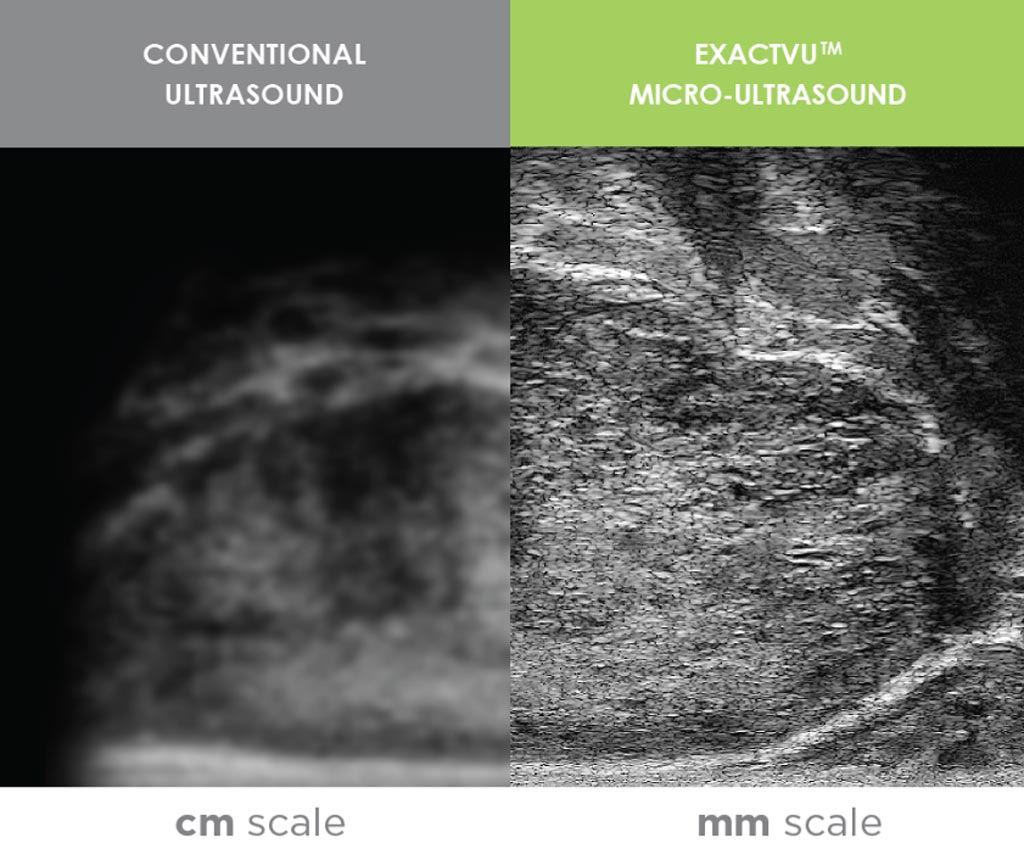AI Applied to Micro-Ultrasound Could Speed Cancer Detection
By MedImaging International staff writers
Posted on 24 Sep 2018
Cambridge Consultants (Cambridge, UK) and Exact Imaging (Markham, ON, USA) are working together to improve the way prostate cancer is visualized and detected by applying deep learning to high-resolution micro-ultrasound imaging. This can help identify potential suspicious regions of tissue and inform urologists who may want to consider this additional data in their biopsy protocol. The early results of their work have been promising.Posted on 24 Sep 2018
Exact Imaging develops high-resolution micro-ultrasound systems enabling real-time imaging and guided biopsies in the urological market for prostate cancer. It is the maker of the ExactVu micro-ultrasound platform, an imaging tool which allows urologists to harness “micro”-ultrasound’s near microscopic resolution in order to visualize suspicious regions and actually target their biopsies to those regions.

Image: A new advanced ultrasound imaging technique is being combined with artificial intelligence to improve the detection of prostate cancer (Photo courtesy of Exact Imaging).
Cambridge Consultants is at the forefront of advances in machine learning and deep learning, applying this transformative technology to a wide range of industries and disciplines. The current work on prostate cancer is the latest output from Cambridge Consultants’ Digital Greenhouse, a unique experimental environment where data scientists and engineers explore and develop cutting edge machine learning and deep learning techniques and which aims to ensure that deep learning is potent beyond the huge online datasets that have powered advances to date. Recent work has focused on applying deep learning in areas where massive datasets are unavailable. In the case of its work on prostate cancer, data was available for hundreds of patients.
With Cambridge Consultants’ AI tools being able to interrogate the full ultrasound data set when correlated to pathology, the analysis is expected to deliver improved accuracy and better characterization of suspicious regions. The machine learning approach being applied is faster and less computationally intensive than traditional statistical approaches and could ultimately form the backbone of a commercially viable software application. Early results from proof of concept testing show significant promise, even with relatively limited data sets.
“The need for effective management of prostate cancer is as pressing as ever,” said Shweta Gupta, Head of Urology and Women’s Health at Cambridge Consultants. “We are proud to have the opportunity to try and improve the detection pathway and excited by the opportunity to apply deep learning to this significant clinical problem.”
Related Links:
Cambridge Consultants
Exact Imaging














